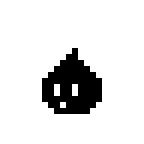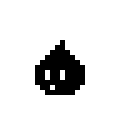

faq's.

here you might find answers to questions you have and maybe discover some new ones. have a question? call me on 0330 363 9997
frequently asked questions.
here we have compiled some of the most common questions that choices are asked by young people. if there's a question you would like to ask, message us.
what about the positive side of substances?.

We take a harm reduction approach which means our main aim is to make sure you have the correct information on the potential risks and effects of the substance you may be using as well as ways to keep yourself as safe as possible. This is for you to make your own informed decisions, and we will not pressure you either way. We are open-minded and happy to have any conversations about drugs, while sharing our knowledge on why some of the benefits we see online may not always be trustworthy or applicable to how drugs are made and sold locally.

where can i see my worker?.
We will meet you wherever you feel most comfortable, whether that is at school or college, at home, at one of our office bases, or out for a coffee or a walk.
will you tell the police/social services what we talk about?.
We work based off of confidentiality and trust. We will only ever break confidentiality and tell someone else what we have talked about if you tell us that you are at risk of harming yourself or others. We will discuss this with you first and let you know what is happening. We will only tell those who have to know and information will not go any further than is necessary.
what is safeguarding?.

Safeguarding is the action that is taken to promote the welfare of children and young people and protect them from harm. Safeguarding means: •Protecting children from abuse and maltreatment. •Preventing harm to children’s health or development. •Ensuring children grow up with safe and effective care. •Taking action to enable all children and young people to have the best outcomes in their lives. Child protection is part of the safeguarding process. It focuses on protecting individual children identified as suffering or likely to suffer significant harm.

what is confidentiality?.
Opening up to someone about your substance use can sometimes feel scary. You might feel worried about what they’re going to do with the information you tell them. Or share it with other people, like your family and friends. We work in a confidential way. This means It means when you talk to someone at Choices they shouldn’t tell anyone else what you’ve said. In some situations, Choices may have to ‘break confidentiality’ to keep you or someone else safe. If this happens, we let you know why we are doing this. E.g. There are concerns that you are at risk of serious harm.
will you tell my parents or foster carer?.
We work in a confidential way. Which means we won’t pass any information on unless you are happy for us to do so. However, if you put yourself or someone else at risk, we have a duty to make sure you are safe and will need to pass the information on. If we do this, we will let you know first that we are doing so and the reason.

will i be told off for using?.
No, we are here to listen and understand why you are using drugs and ways of staying safe. Obviously using drugs isn’t safe, but it’s important you get the right information to make choices on what you want to do about your drug use. We use a harm reduction approach so you can keep yourself as safe as possible.
have you (choices worker) ever used drugs?.
Choices staff can’t disclose if they have or haven’t used drugs.
do we need parental consent to refer?.
No, we do not need parental consent.
do i have to give up drugs forever?.
-We don’t tell you what to do. We tell you the facts and then it’s up to you what you do with that information. It could be that you want to still use, reduce your use or stop. We can support you with whatever you decide.
can i bring a friend?.
Sure, It’s your appointment and it’s important you feel safe and relaxed.
